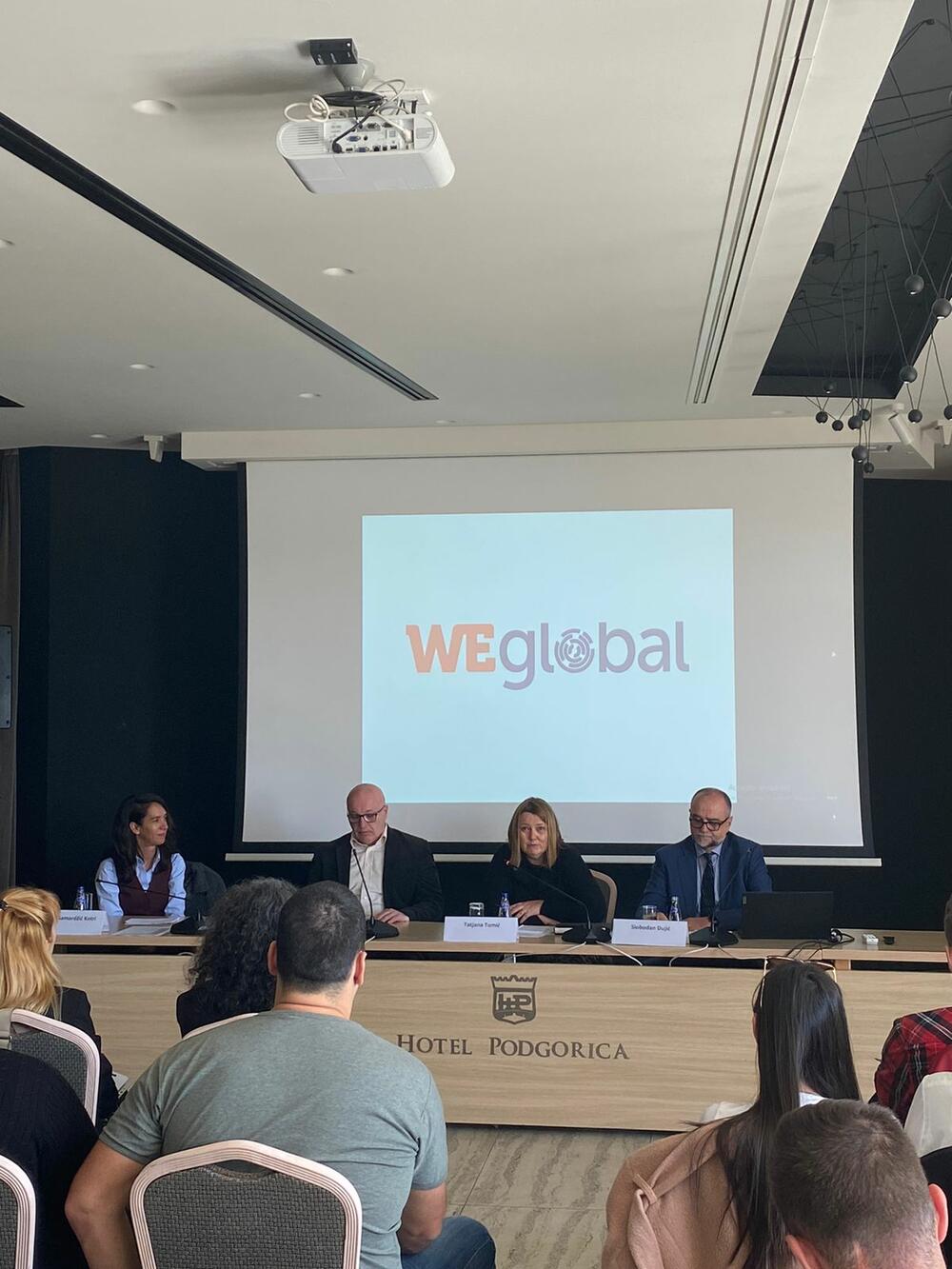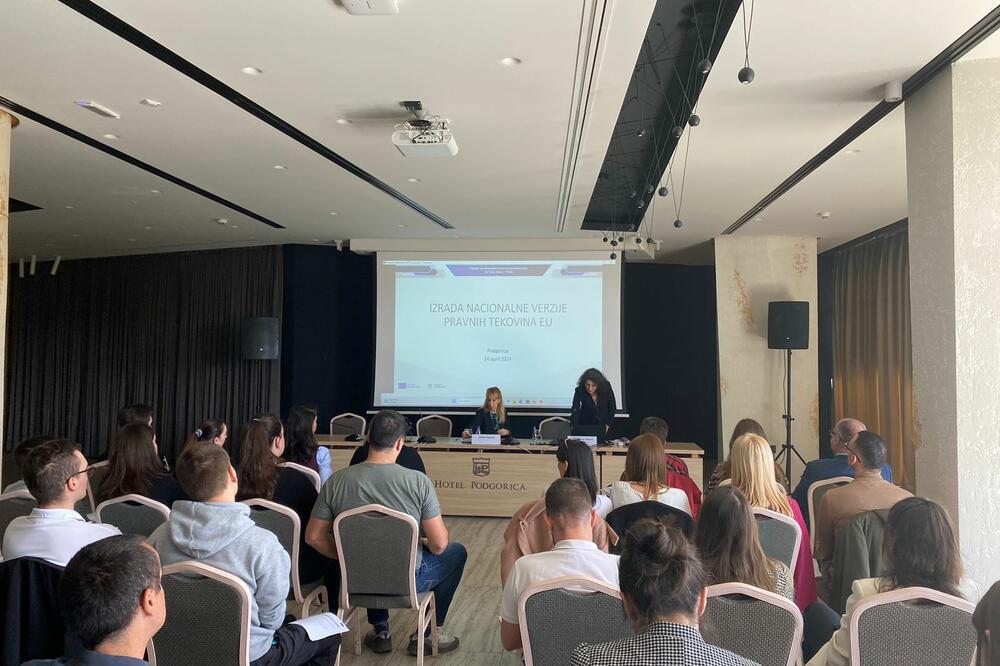The Ministry of European Affairs (MEP) will establish cooperation with philology faculties in the preparation of the national version of the European legislation, it was announced from that government department.
This, as they stated, was concluded at the workshop on the preparation of the national version of the legal acquis of the European Union (EU), which was organized by the MEP, as part of the "Center for Strategic-Legal Consulting for Montenegro - PLAC" project, and in which students participated of translation studies at the philological faculties of the University of Montenegro (UCG) and the University of Donja Gorica (UDG).
The MEP explained that the preparation of the national version of European legislation is a prerequisite for EU membership and one of the most demanding legal translation projects that a candidate state must implement before joining the EU.
"Taking into account the acceleration of the negotiation process and the desire to become the next, 28th member state of the EU, Montenegro must intensively plan the education of a large number of professionals who will work on the translation of legal acquis and other tasks in the context of negotiations, and later membership," he says. in the announcement of the MEP.
Head of the Directorate for the preparation of the Montenegrin version of the EU legal acquis in the MEP, Jelena Samardžić Kotri, said that the previous experience with regard to the translation of European legal texts shows that it is necessary to increase the translation capacity of Montenegro as soon as possible.
She said that, with the aim of improving the system on a long-term plan, as well as participating in adapting the education system to the needs of the labor market, the establishment of cooperation between the MEP and philological faculties is planned.
As she pointed out, by comparing figures from neighboring countries, it is obvious that Montenegro lacks the capacity to ensure adequate and timely processing of the legal acquis, especially bearing in mind that the scope of the legal acquis is identical for all administrations, regardless of their size.
"Since the legal acquis is a "moving target", during the very long period of Montenegrin negotiations, almost a quarter of the translated acts ceased to be valid and were replaced by a new legal acquis", said Samardžić Kotri.
She said that about 200 editors from competent institutions were appointed for professional editorial work, but without an appropriate legislative binding framework.
The Dean of the Faculty of Philology of the University of Montenegro, Igor Lakić, said that the translation of legal documents implies the entry of translators into the legal profession.
He recalled that, with the beginning of the EU integration process, the need for translator training was recognized and an academic program for the training of translators was established, which was supported by the Government.

As he pointed out, during the previous period there was no support for the mentioned academic program, and the translators were left to themselves to acquire the necessary professional knowledge.
Lakić said that it would be good to sign a memorandum of cooperation between the Faculty of Philology and MEP and to work on cooperation modalities in order to profile the translation staff.
"This cooperation will be a contribution to the training of students through practical work and targeted training intended for all participants in the process of translation and editing of EU legal acts," said Lakić.
Project manager Tatjana Tomić emphasized the importance of language in the context of the EU and reminded of the procedure that needs to be carried out in order for the language of the candidate country to become an official language of the EU.
Tomić emphasized that the regulations adopted by EU institutions apply to all citizens of the Union and they must understand them.
"They must be available in all official languages", said Tomić, adding that it is the right of every citizen to speak with the EU institutions in their own language and reminded that the European Union today has 24 official languages.
As announced by the MEP, the experiences of four countries, Montenegro, Slovenia, Croatia and Serbia, in the preparation of the national version of the European legislation were also presented at the workshop.
"It was pointed out that the exchange of knowledge with neighbors who have already successfully completed the process, the use of positive and lived experience of other candidate countries that have progressed more in this process should be used in solving their own challenges," the statement said.
Bonus video:




